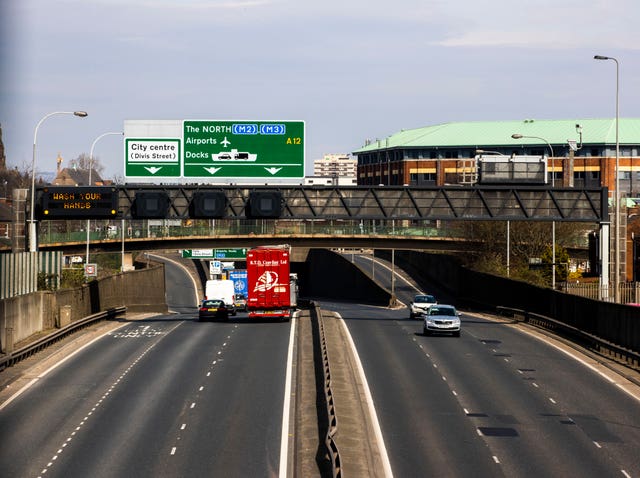Uncertainty and lack of time before the end of Brexit transition poses a “potent threat” to prosperity and stability in the north of Ireland, a report has warned.
Businesses in Great Britain could decide it is economically unviable to continue operations across the Irish Sea unless flexibility is shown in the EU negotiations, a House of Lords committee warned.
The country will have to follow EU rules on agriculture and manufactured goods, ensuring access to its single market and keeping the border with the Republic of Ireland free-flowing in a key concession maintaining a decades-old peace.
The group of peers said: “The combination of uncertainty, lack of momentum and lack of time, compounded by the shock of the Covid-19 pandemic, is a potent threat to economic prosperity and political stability in Northern Ireland.”
The Specialised Committee on the Ireland/Northern Ireland Protocol is expected to meet today for the first time. In a recent letter to @beisgovuk we highlighted the Protocol’s #StateAid provisions as a key area of uncertainty … 1/2
— Lords EU Committee (@LordsEUCom) April 30, 2020
The mechanism ensuring the country’s border with the Republic remains open after the Brexit transition period finishes at the end of this year is known as the Northern Ireland Protocol and was agreed between the EU and UK during the Brexit talks.
The UK government published a document attempting to flesh out some detail in May.
It said checks will be needed on some goods entering the north of Ireland from the rest of the UK as part of Brexit but bureaucracy will be kept to a “minimum”.
The House of Lords European Union committee’s report responded: “While some detail was provided, the command paper’s heavy reliance on the future tense underlines how little progress has been made thus far, how many issues remain to be resolved and how much work still needs to be done before the protocol becomes operational on January 1 2021.”
Unless the joint committee of EU and British officials overseeing the process adopted a flexible definition of goods at risk of ending up in the Republic, checks and processes on those moving from Great Britain to the north of Ireland could have a “serious detrimental impact”, the House of Lords review added.
Its report said: “There is a real danger that businesses based in Great Britain could conclude that it is economically unviable to continue to operate in Northern Ireland, leading in turn to reduced choice and higher costs for Northern Ireland consumers, thus undermining Northern Ireland’s economic model, its future prosperity and, potentially, its political stability.”

Before the Covid-19 outbreak, Northern Irish businesses felt preparing for the protocol to become operational on 1 January next year was a Herculean task, the committee said.
“That task has become even more difficult, given the impact of Covid-19 on the economy and the capacity of individual businesses to cope with the problems confronting them.
“Given its refusal to countenance an extension to the transition period, the government must urgently explain to Northern Ireland stakeholders the practical steps that will be taken to ensure the protocol is operational from January 1 2021.”
It said the joint UK-EU committee will also need to take the changed circumstances arising from the infection into account.
“Clarity on the practical measures that will be necessary to implement the protocol, and the steps that businesses based in or trading with Northern Ireland need to take to prepare, is now required as a matter of acute urgency if damage to the Northern Ireland economy is to be avoided.”
A UK government spokesperson said its priority remains to strengthen the north of Ireland’s place in the UK and preserve the “huge gains” from the peace process and Belfast (Good Friday) Agreement.
He added: “Our proposals will deliver unfettered access for Northern Ireland businesses to the whole of the UK market, ensuring there are no tariffs on goods remaining within the UK customs territory and no need for any new customs infrastructure in Northern Ireland.
“We are committed to implementing our obligations under the Withdrawal Agreement and have set out the approach that will guide us as we do.”










